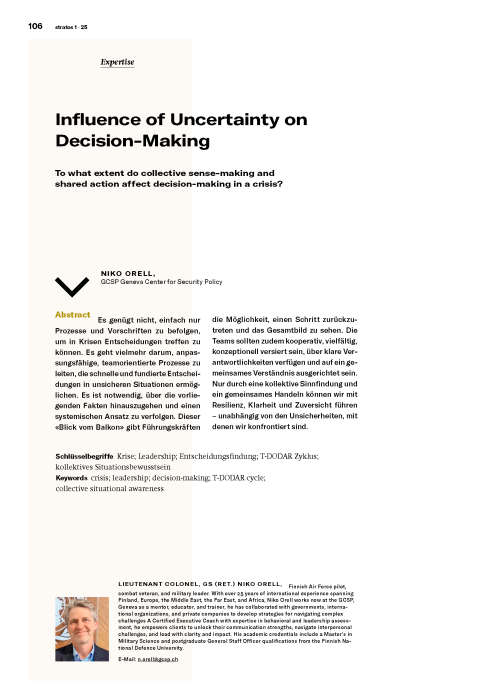Influence of Uncertainty on Decision-Making
To what extent do collective sense-making and shared action affect decision-making in a crisis?
Abstract
It is not enough to simply follow processes and regulations in order to make decisions during a crisis. Rather, it is about leading adaptive, team-oriented processes that enable quick and well-informed decisions in uncertain situations. It is essential to go beyond the available facts and adopt a systemic approach. This "balcony view" allows leaders to take a step back and see the bigger picture.
Teams should also be cooperative, diverse, conceptually skilled, have clear responsibilities, and be aligned toward a shared understanding. Only through collective sense-making and joint action can we lead with resilience, clarity, and confidence—regardless of the uncertainties we face.
Disclaimer: This publication was originally published on the Stratos website. The views, information and opinions expressed in this publication are the author’s/authors’ own and do not necessarily reflect those of the GCSP or the members of its Foundation Council. The GCSP is not responsible for the accuracy of the information.


